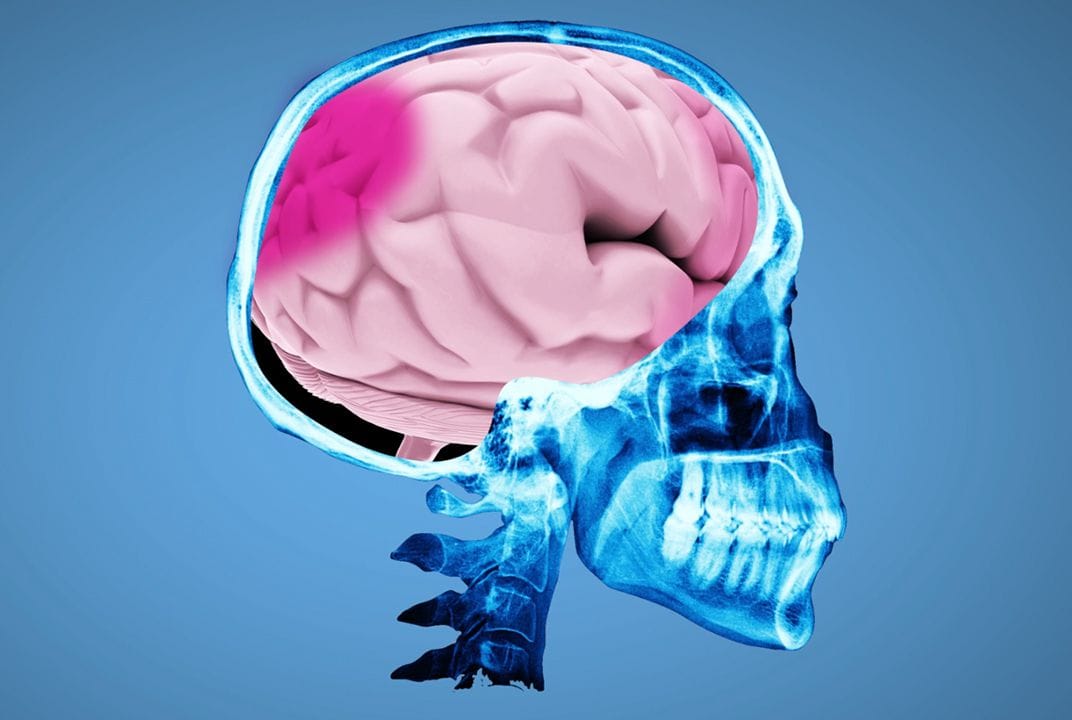
Individuals involved in a motor vehicle collision commonly experience concussions. It is commonly assumed that a concussion is not a serious injury because the signs and symptoms are not necessarily painful or observable; however, concussions are a form of traumatic brain injury and can lead to life-altering ailments.
Concussions: The Facts
Concussions are the most common form of Traumatic Brain Injury, or TBI. The injury can be the result of any type of impact, like a fall, motor vehicle accident, or sports-related collision, which causes the brain to bump against the skull. The injury can be, but is not necessarily, caused by a direct blow to the head. This impact jostles around the neurons and axons inside the brain resulting in the signs and symptoms associated with concussions.

Inside the brain, neurons communicate with each other through axons, long and fragile “bridges” that connect and carry messages between neurons. When an impact causes the brain to bump against the inside of the skull, the neurons shift, stretch, and tear causing the axons to move and break. The breaking of these “bridges” interrupts communication between neurons. Furthermore, axons release toxins when deteriorating- poisoning other unaffected neurons in the brain.
If an individual does suffer from a concussion, he or she may experience a few or many of the following:
- Loss of consciousness
- Sensitivity to light or sound
- Confusion or amnesia
- Mood changes
- Seizure(s)
- Speech problem and issues communicating
- Seeing stars/hearing ringing
- Long or worsened headaches
- Blurred vision
- Nausea or vomiting
- Disrupted sleep patterns
- Memory issues
- Difficulty concentrating
- Inability to taste or smell
A man or woman suffering from a concussion may not display signs for hours or days after the incident. The signs can be difficult to recognize; if you suffer from a hard impact, it is important to have someone who could notice your behavioral changes close by to monitor your condition.
The signs may be delayed even if the brain injury is severe. It is important to get medical assistance immediately after displaying any of these symptoms as they may be indications of a severe brain injury:
- Different sized pupils
- Repetitive vomiting
- Problems maintaining balance or walking
- Loss of consciousness for more than 30 seconds
- Jerky or unusual eye movements
- Seizure(s)
- Muscle weakness
- Persistent confusion
- Changes in mental alertness/awareness

Regardless of the severity, anyone who has suffered from a concussion may experience Post-Concussion Syndrome (or PCS). PCS may last for months or even years after an injury. Men and women with PCS may experience noticeable behavioral changes or problems, chronic long-lasting headaches, and learning difficulties. PCS can negatively impact the individual’s interpersonal relationships, work or school performance, and/or mental health.
Though common, concussions can have long-lasting effects on the affected individual’s daily life. If you or a loved one have suffered from a concussion due to the negligent act of another, such as a motor vehicle collision or a slip-and-fall, you may be entitled to compensation. Call Attorney Andrew Rehmeyer for a free consultation today.
